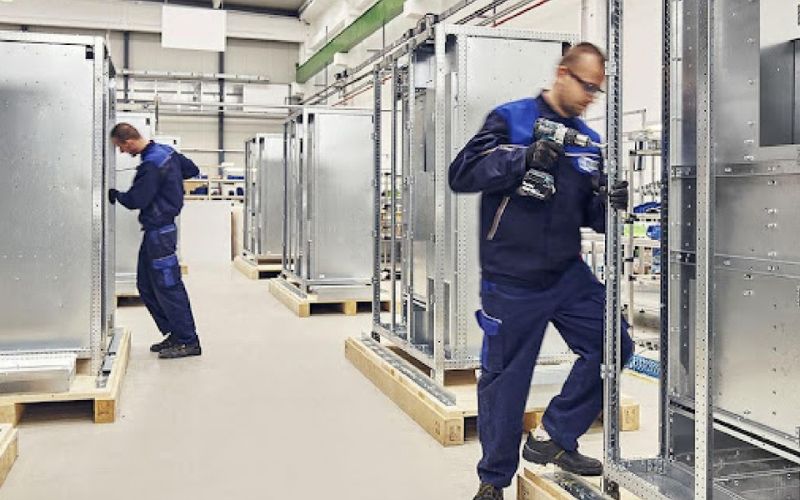
According to McKinsey, up to 80% of a product’s cost is already determined during its design phase. This makes the choice of manufacturing processes a strategic factor, not a technical afterthought. Manufacturing has always been shaped by technologies - from stamping presses to injection moulding, from CNC machining to advanced surface finishing - each with its own strengths, applications, and limitations.
Traditionally, many suppliers have built their identity around a single technology, becoming experts in one field but often constrained by its boundaries. At FAIST Industrial, we take a different path. We believe no product should be confined by one process alone. Every component has its own requirements: some must be lightweight, others resilient under heavy stress, and many need the right balance between cost efficiency and long-term reliability. A technology-neutral mindset allows us to assess each case without bias and identify the most effective solution.
From Processes to Integrated Solutions
An emerging trend in manufacturing emphasizes combining capabilities to gain flexibility and resilience: Roland Berger’s Next Generation Manufacturing report underscores how combining strengths across technologies is becoming a key competitive lever.
At FAIST Industrial Business Unit, we manage a broad portfolio: sheet metal, CNC machining, plastic injection, multiple welding techniques, and electromechanical assembly. Moreover, being part of FAIST Group allows access to additional capabilities like high-pressure die casting - enabling hybrid solutions where sheet metal, plastics, cast components and machining come together seamlessly.
This integrated model is how we approach projects every day: rather than forcing a one-size-fits-all solution, we lay out alternatives, compare performance vs. cost trade-offs, and propose the optimal route.
Why Neutrality Creates a Competitive Advantage
Speed, cost efficiency, and innovation are the pillars of competitiveness. BCG highlights that simplifying supply chains and reducing unnecessary handovers can significantly shorten development cycles and improve responsiveness - a decisive advantage in industries where time-to-market is key.
For our customers, adopting a technology-neutral approach means:
- Cost efficiency from the start, reducing risks of overengineering.
- Accelerated time-to-market, by managing multiple stages in-house or within the Group.
- Seamless quality, under unified standards across different technologies.
- Room for innovation, where technologies are not silos but tools to be combined.
Deloitte’s latest manufacturing outlook points to cross-functional integration, smart operations, and supply-chain digitalization as primary drivers of competitiveness and innovation in the sector - consistent with a technology-neutral approach to product and process design. Concrete examples follow from this logic: a stamped part may be enhanced with plastic inserts or machined features; a sheet-metal frame may become more cost-effective when redesigned with cast elements. Neutrality lets us bring such alternatives to the table and turn them into practical solutions.
Beyond the Machine: A Partner Mindset
Manufacturing is not only a matter of machines - it is about mindset and collaboration. At FAIST Industrial, neutrality is not simply about offering many processes under one roof, but about knowing how and when to combine them in synergy. Our engineers and project managers work closely with clients, challenging assumptions when needed and guiding decisions toward the most effective solutions. The objective is not only to deliver components, but to contribute to strategies that are innovative, competitive, and sustainable.
For this reason, we see ourselves as partners rather than suppliers. We do not sell stamping, moulding, or machining capabilities. We deliver the right combination of processes that help customers succeed - achieving objectives, reducing risks, and accelerating developments.
Looking Ahead
Analysts expect increasing convergence of materials, power electronics, and digital technologies in industrial products toward 2030 - a trajectory that favours hybrid, integrated designs and flexible manufacturing models. PwC’s article on the US future industrial products and megatrends outlines how these forces will shape production footprints, technology choices, and operating models in the decade ahead.
As industries evolve, products become more complex, markets more competitive, and timelines more compressed. In this environment, flexibility in manufacturing approaches will be the decisive factor.
At FAIST Industrial, we are committed to keeping this flexibility at the heart of our work. By remaining open, adaptive, and integrated, we ensure that our customers receive not just components, but tailored solutions designed for long-term success.



